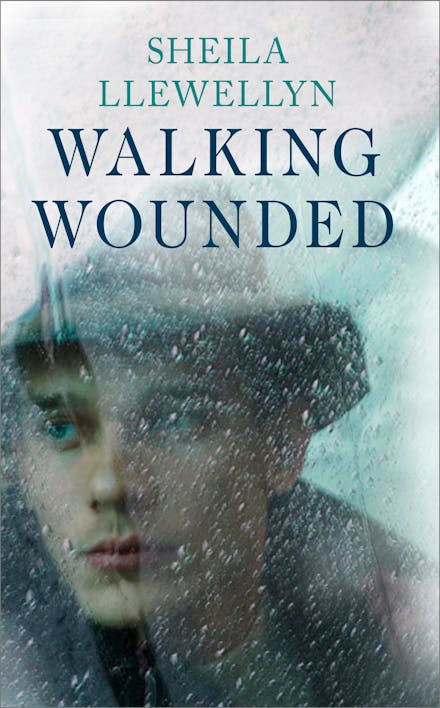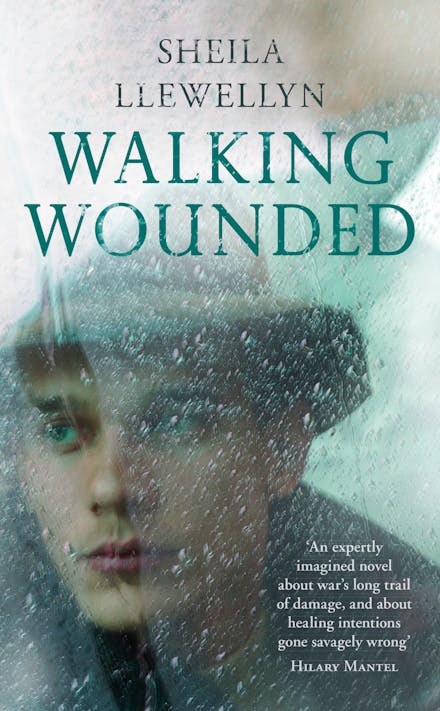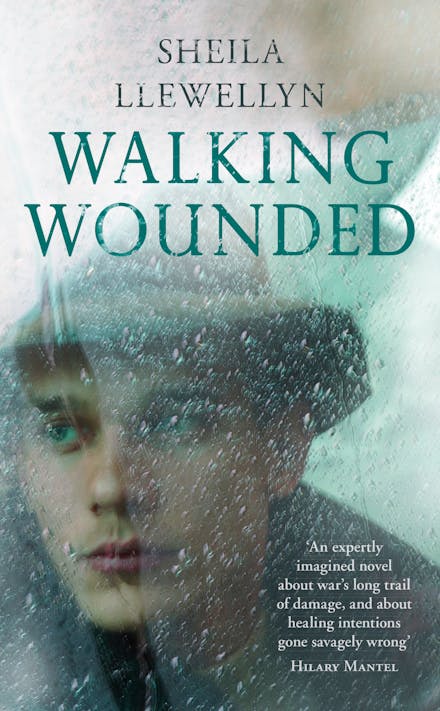Imprint
- Sceptre
- Sceptre
- Sceptre
- Sceptre
Modern & contemporary fiction (post c 1945), War & combat fiction
-

Imprint
Sceptre
- Paperback Jul 12, 2018 | 9781473663107 | RRP $24.99 Buy Now
- Trade Paperback Jan 30, 2018 | 9781473663084 | RRP $34.99 Buy Now
- e-Book Jan 25, 2018 | 9781473663091 | RRP $11.99 Buy Now
- Audiobook Jan 25, 2018 | 9781473663299 | RRP $35.99 Buy Now
Play Sample0:00 -

Imprint
Sceptre
- Paperback Jul 12, 2018 | 9781473663107 | RRP $24.99 Buy Now
- Trade Paperback Jan 30, 2018 | 9781473663084 | RRP $34.99 Buy Now
- e-Book Jan 25, 2018 | 9781473663091 | RRP $11.99 Buy Now
- Audiobook Jan 25, 2018 | 9781473663299 | RRP $35.99 Buy Now
Play Sample0:00 -

Imprint
Sceptre
- Paperback Jul 12, 2018 | 9781473663107 | RRP $24.99 Buy Now
- Trade Paperback Jan 30, 2018 | 9781473663084 | RRP $34.99 Buy Now
- e-Book Jan 25, 2018 | 9781473663091 | RRP $11.99 Buy Now
- Audiobook Jan 25, 2018 | 9781473663299 | RRP $35.99 Buy Now
Play Sample0:00 -

Imprint
Sceptre
- Paperback Jul 12, 2018 | 9781473663107 | RRP $24.99 Buy Now
- Trade Paperback Jan 30, 2018 | 9781473663084 | RRP $34.99 Buy Now
- e-Book Jan 25, 2018 | 9781473663091 | RRP $11.99 Buy Now
- Audiobook Jan 25, 2018 | 9781473663299 | RRP $35.99 Buy Now
Play Sample0:00
A stirring debut novel about the complex relationship between a soldier and his psychiatrist, set in a failing psychiatric hospital between the end of the Second World War and the founding of the NHS.
SHORTLISTED FOR THE PAUL TORDAY MEMORIAL PRIZE
*'100 Best Reads for Summer', Sunday Times*
*'Best Summer Reads', Irish Times*
*'8th July Pick of the Week', Sunday Times*
An expertly imagined novel about war's long trail of damage, and about healing intentions gone savagely wrong.' Hilary Mantel
'The atmosphere of the late forties is brilliantly evoked . . . a compassionate and compelling account of post traumatic stress in veterans of the Second World War while bringing individual patients and their psychiatrists vividly to life.' Pat Barker
Set in Northfield, an understaffed military psychiatric hospital immediately before the NHS is founded, Walking Wounded is the story of a doctor and his patient: David Reece, a young journalist-to be whose wartime experiences in Burma have come back to haunt him violently; and Daniel Carter, one of the senior psychiatrists, a man who is fighting his own battles as well as those of his patients.
This moving and impressive debut explores violence and how much harm it does to those forced to inflict it in the name of war. It also captures the dilemmas of the medics themselves as they attempt to 'fix' their patients, each of whom raise the question of what has happened to their humanity, what can be done to help them, and what we are willing to sacrifice in the name of healing.
Praise for Walking Wounded
-
An expertly imagined novel about war's long trail of damage, and about healing intentions gone savagely wrong. Walking Wounded will engage fans of Pat Barker's Regeneration trilogy, though it deals with more recent history, steeping its reader in the atmosphere of the late forties, early fifties in England - that drab, deprived country, avid for anything new. How did the fighting men and women still their minds and bodies to peacetime's demands - and what did the civilian world offer, in compensation for unimaginable sacrifices on distant battlefronts? Walking Wounded will shock the reader - it is a fierce warning against medical arrogance. - Hilary Mantel
-
A considerable achievement. The atmosphere of the late forties is brilliantly evoked . . . a compassionate and compelling account of post traumatic stress in veterans of the 2nd world war while bringing individual patients and their psychiatrists vividly to life - Pat Barker
-
Reminiscent of Pat Barker's Regeneration, and its portraits of damaged soldiers from an earlier conflict, this is a novel that matches Barker's work in its exploration of the trauma wars inflict on those who fight them. - Sunday Times
-
Writing about a hospitalised and traumatised poet is to invite comparisons to Pat Barker's Regeneration trilogy about shell-shocked First World War poets. Llewellyn's shocking and moving debut can hold its own even in that celebrated company. - Book of the Month, The Times
-
Llewellyn has taken the harrowing subject of PTSD and used it to produce a haunting debut novel . . . The level of detail in the book is remarkable - Irish Sunday Times
-
A richly researched tale that stars cameos of the real-life medics who advocated brain surgery as a cure for the psychic scars of service. If that seems an outrage today, Llewellyn's achievement in this tender period piece is to evoke an incendiary sense of scandal, while avoiding all trace of we-know-better-now smugness. - Daily Mail
-
Meticulously researched, emotionally devastating: a work of uncommon brilliance. - Ian Samson
-
An astute and powerful portrayal of the damage inflicted by war and the suffering often caused by misguided attempt to repair it. An extremely impressive first novel that combines a delicacy of language and a profound strength of insight. - David Park

















.png?auto=compress&w=150&h=60&fit=crop&fm=jpg)



.png?auto=compress&w=150&h=60&fit=crop&fm=jpg)

